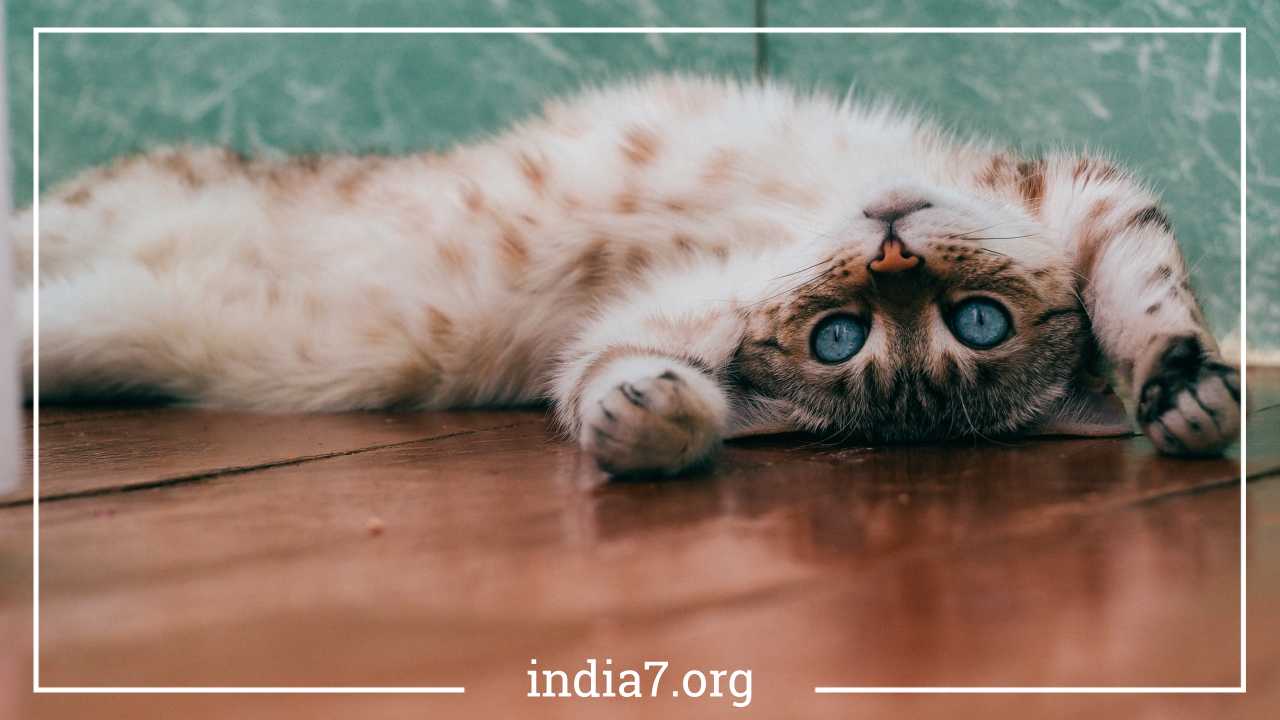Cat Health Issues: Nutrition, Behavior, Vaccinations, and More

Cat Health Issues
Cats are cherished members of countless households around the world. Their playful antics, affectionate moments, and independent personalities bring joy and comfort to their owners. As a responsible cat owner, it’s your duty to ensure your feline friend enjoys a healthy and fulfilling life.
This comprehensive guide will delve deeper into the various aspects of cat care, covering everything from nutrition and behavioral observations to vaccinations and common health concerns.
1. The Foundation of Cat Health: Nutrition
The cornerstone of feline health is proper nutrition. What you feed your cat has a profound impact on their overall well-being. Premium cat food is recommended as it is specifically formulated to meet the unique dietary needs of cats. Here are some key considerations:
A. Choosing the Right Cat Food:
- Look for high-quality commercial cat food that lists meat as the primary ingredient.
- Avoid foods with excessive fillers, artificial additives, or preservatives.
- Consult your veterinarian for recommendations, especially if your cat has special dietary requirements.
B. Balanced Diet:
- Ensure your cat’s diet is balanced, providing essential nutrients such as protein, vitamins, minerals, and water.
- Avoid feeding your cat solely on homemade diets, as it can be challenging to meet their nutritional needs.
C. Portion Control:
- Overfeeding can lead to obesity, which is a common health issue in cats.
- Follow the feeding guidelines on the cat food packaging or consult your vet for personalized recommendations based on your cat’s age, size, and activity level.
2. Behavioral Observations: Detecting Signs of Illness
Cats are masters at hiding signs of illness, making it essential for you to be vigilant about their behavior. Detecting changes early can lead to prompt medical attention and better outcomes. Here are some behavioral cues to watch for:
A. Lethargy and Inactivity:
- A sudden decrease in activity levels or constant rest could signal illness.
- Cats are naturally active, so any prolonged lethargy should raise concerns.
B. Changes in Appetite:
- A sudden loss of appetite or refusing to eat can be indicative of various health issues.
- Conversely, an increase in appetite without weight gain may also warrant attention.
C. Coat Condition:
- A cat’s coat should be shiny and well-groomed.
- Dull, patchy fur or excessive shedding may indicate underlying health problems.
D. Gastrointestinal Issues:
- Diarrhea and vomiting can occur occasionally due to dietary indiscretions or minor illnesses.
- However, persistent or severe gastrointestinal problems should be addressed promptly.
E. Respiratory Symptoms:
- Coughing, wheezing, or labored breathing may indicate respiratory issues or allergies.
- If your cat experiences such symptoms beyond occasional hairball-related coughing, consult your vet.
3. Vaccinations: Preventing Deadly Diseases
Vaccinations are crucial for protecting your cat against various infectious diseases. While some vaccinations are considered core and essential for all cats, others are recommended based on individual circumstances. Here are some important vaccinations to consider:
A. Core Vaccinations:
- Rabies: This viral disease can be transmitted to humans and is often fatal. Rabies vaccinations are typically required by law.
- Feline Distemper (Panleukopenia): Feline distemper is highly contagious and can be fatal. Vaccination is highly recommended to prevent this devastating disease.
B. Non-Core Vaccinations:
- Feline Leukemia Virus (FeLV): FeLV is another deadly virus that can be prevented through vaccination. This vaccine is particularly important for cats with outdoor access or those in multi-cat households.
- Feline Immunodeficiency Virus (FIV): FIV is sometimes called “cat AIDS” and affects the immune system. Vaccination against FIV is considered non-core and is typically recommended for cats at high risk of exposure.
4. Feline Leukemia: A Deadly Threat
Feline leukemia is a viral disease that poses a significant risk to cats, particularly those with outdoor access. It’s important to understand the disease, its transmission, and prevention:
A. Transmission:
- Feline leukemia is primarily spread through close contact, such as grooming, fighting, or mating.
- Kittens can contract the virus from their infected mother.
B. Vaccination:
- Vaccination against feline leukemia is available and recommended, especially for outdoor cats.
- Even vaccinated cats should avoid close contact with known FeLV-positive cats.
C. Testing:
- If you adopt a new cat, have them tested for feline leukemia.
- Regular testing is advisable for cats with outdoor exposure.
5. Worm Infestations: A Common Issue
Worm infestations are a common concern for cat owners, particularly those with outdoor or hunting cats. Here’s what you should know about this issue:
A. Types of Worms:
- Cats can harbor various types of worms, including roundworms, tapeworms, hookworms, and more.
- Each type of worm can have distinct symptoms and requires specific treatment.
B. Symptoms:
- Worm-infested cats may exhibit symptoms such as a lackluster coat, weight loss, diarrhea, vomiting, and a potbellied appearance.
C. Prevention and Treatment:
- Regular deworming is essential, especially for outdoor cats or those at risk of exposure to infected prey.
- Consult your veterinarian for the appropriate deworming schedule and products.
D. Flea Control:
- Fleas are common carriers of tapeworms. Implement a flea control program to reduce the risk of tapeworm infestations.
E. Garlic as a Preventive Measure:
- Some cat owners use garlic as a natural remedy to deter worms. While garlic may have some repellent properties, its use in cat diets should be approached cautiously, as excessive consumption can be harmful.
6. Routine Vet Checkups: The Key to Preventative Care
Regular checkups with your veterinarian are crucial for maintaining your cat’s health. These appointments allow the vet to monitor your cat’s overall condition, catch potential issues early, and provide preventive care. Here’s what to expect during these visits:
A. Physical Examination:
- Your vet will perform a thorough physical examination to assess your cat’s overall health.
- They will check for any abnormalities, such as lumps, dental issues, or signs of illness.
B. Vaccinations:
- Ensure your cat receives the necessary vaccinations as recommended by your vet.
- Discuss any potential risks in your cat’s environment that may require additional vaccinations.
C. Parasite Control:
- Your vet can recommend and prescribe the appropriate parasite control measures, such as flea preventives and deworming medications.
D. Dental Care:
- Dental health is crucial for cats. Your vet may recommend dental cleanings or at-home dental care routines.
E. Senior Care:
- As your cat ages, their healthcare needs may change. Senior cats may require more frequent checkups and specific treatments for age-related issues.
7. Additional Health Considerations
Aside from the topics discussed above, there are several other health considerations that can impact your cat’s well-being:
A. Spaying and Neutering:
- Consider spaying or neutering your cat to prevent unwanted pregnancies and reduce the risk of certain health issues, such as reproductive cancers and aggressive behavior.
B. Microchipping:
- Microchipping your cat can help reunite you with your pet if they ever get lost.
C. Environmental Enrichment:
- Providing mental and physical stimulation is essential for your cat’s mental health.
- Offer toys, scratching posts, and playtime to keep your cat engaged.
D. Allergies:
- Cats can develop allergies to various environmental factors or foods. Consult your vet if you suspect allergies are affecting your cat.
E. Stress Management:
- Cats are sensitive to changes in their environment. Minimize stressors, such as abrupt changes in routine or new additions to the household.
F. Emergency Preparedness:
- Have an emergency plan in place in case of natural disasters or other unforeseen emergencies.
8. Conclusion: The Ongoing Commitment to Cat Health
Owning a cat is a rewarding experience, but it also comes with the responsibility of ensuring their health and well-being. By providing proper nutrition, staying vigilant for signs of illness, vaccinating against deadly diseases, preventing worm infestations, and maintaining regular vet checkups, you can give your feline friend the best chance at a long and healthy life.
Remember that each cat is unique, and their healthcare needs may vary. Consult your veterinarian for personalized guidance and recommendations based on your cat’s individual circumstances. Your commitment to your cat’s health will not only lead to a happier and healthier cat but also strengthen the bond you share with your beloved feline companion.



